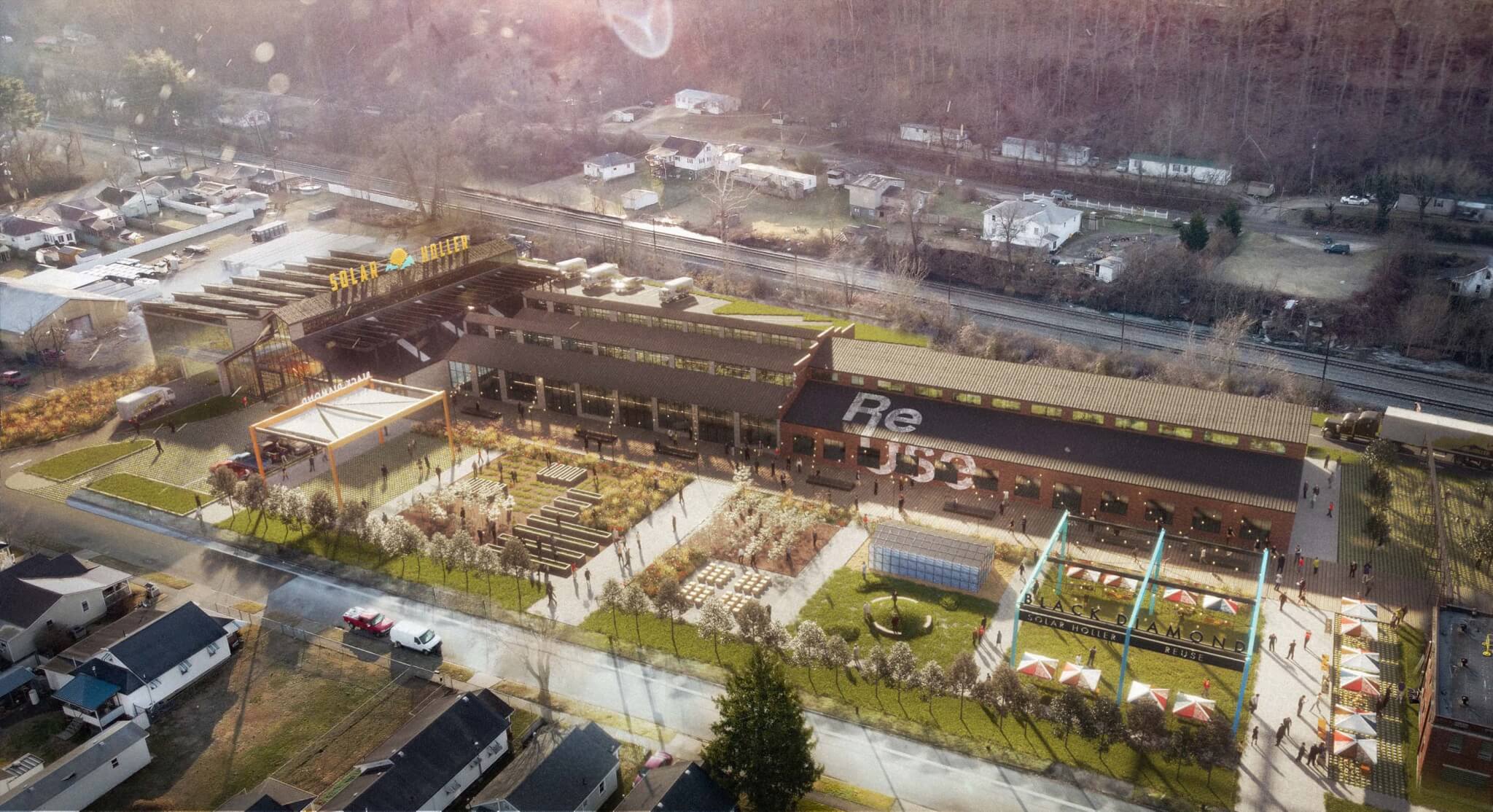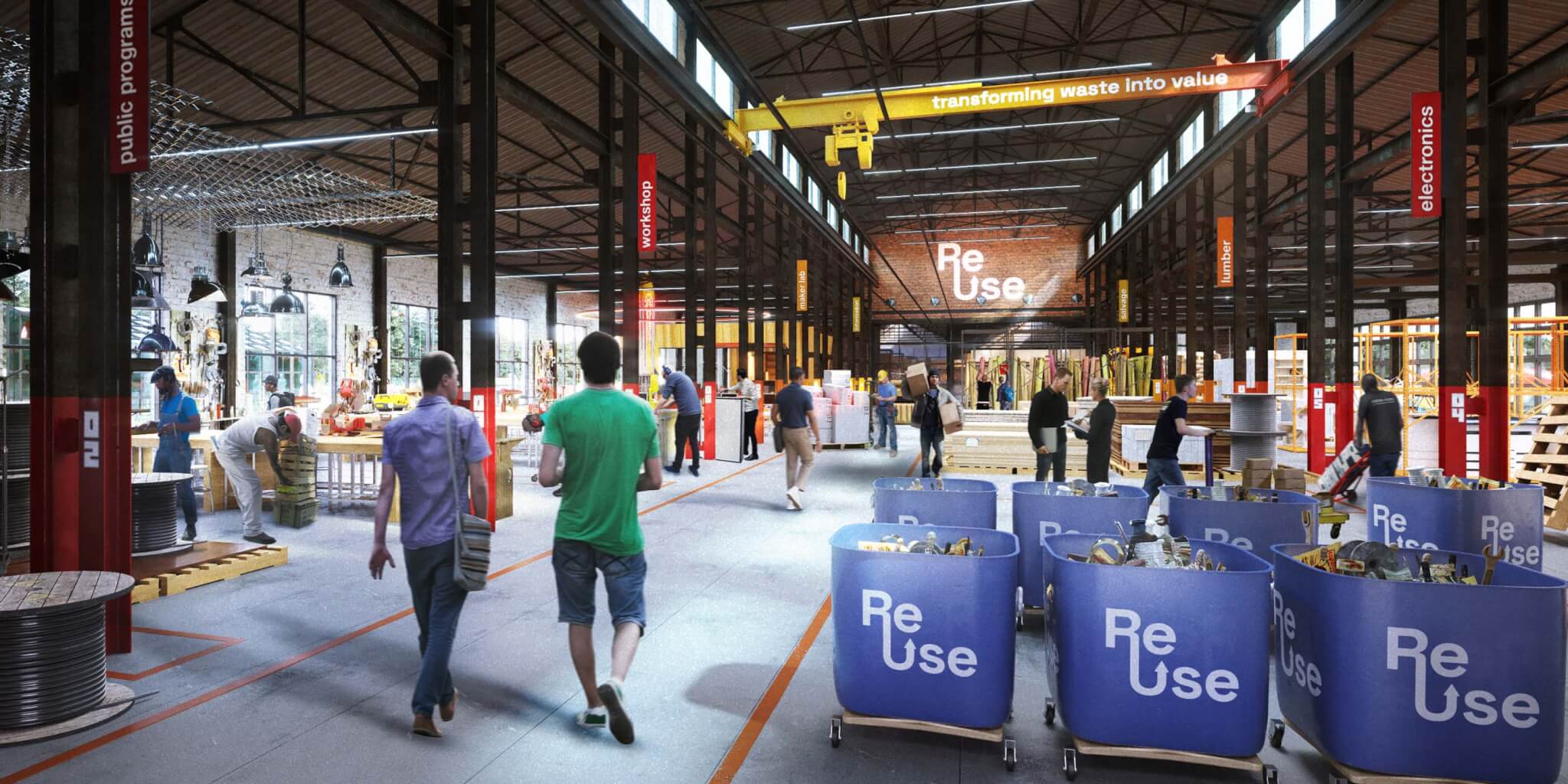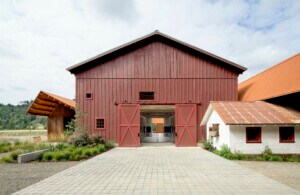Coal was king for decades in rural Appalachia. In recent years, however, the switch to natural gas and tough regulations placed on coal and power plant operators has jeopardized the fuel’s future. Coalfield Development, a West Virginia nonprofit dedicated to promoting economic development, is on the forefront in trying to change that, bringing much needed revitalization and economic drivers to the region, with eight projects across the state of West Virginia through the Appalachian Climate Technologies Coalition (ACT Now Coalition), a grant recipient of the national Build Back Better Regional Challenge organized by President Biden and the U.S. Economic Development Administration (EDA).
Among these projects is Black Diamond, a shuttered coalfield development in Wayne County, in the far west of West Virginia, that will be transformed into a regional hub for solar and renewable energy operations complete with a shipping warehouse, job training center, and dedicated space for growing solar, recycling, and bio-based manufacturers to do business. Leading the design effort on the new facility is WXY architecture + urban design and West Virginia–based Edward Tucker Architects, alongside GAI Consultants and SB Friedman Development Advisors.

WXY’s director of urban design, David Vega-Barachowitz shared in a press statement: “The redevelopment plan includes a headquarters for expanding solar companies, recycling and reuse businesses, and bio-based manufacturing. We applaud Coalfield Development’s bold vision for the future of this site as a way to unlock investment in West Virginia and advance the new energy economy.”
Solar Holler, a solar panel manufacturer headquartered on the opposite side of the Mountain State in Shepherdstown will set up some of its operation within the new Black Diamond facility, which will bring new jobs to the area, stimulating further development and promoting renewable energy.
Redevelopment of the contaminated Black Diamond site began with an extensive cleanup effort to remove environmental hazards such as inorganic metals and polycyclic aromatic hydrocarbons, typically found in coal deposits. Through soil, soil vapor, and groundwater sampling, Coalfield Development and a team of engineers analyzed and cleaned the site to ready it for its next life.

As for the new development itself, it will make use of existing buildings onsite, a series of primarily single-story structures with high ceilings. The buildings outfitted as warehouse spaces can accommodate the steady in-and-out movement of shipment vehicles and serve as expansive storage facilities.
Coalfield Development was the lead applicant on the $63 million grant awarded to the ACT Now Coalition through the Build Back Better program, which distributed $1 billion among local groups to spur economic growth nationwide. The nonprofit will work with West Virginia University and other organizations operating across the state such as WV Community Development Hub and The Nature Conservancy.
The funding Coalfield Development received will be allocated among Black Diamond and seven other projects across West Virginia with similar goals. These projects include repurposing the Huntington Brownfield lot into the RCBI Welding & Robotics Technology Training Center, transforming the Kanawha Manufacturing plant into a mixed-use neighborhood with affordable housing, converting old mines into renewable energy hubs, and increasing the use and installation of solar and renewable energy across the state.

While the Build Back Better plan and funding for the ACT Now Coalition, announced back in September, are positive news and steps designed to propel U.S. economy recovery efforts and to promote sustainability in response to climate change, they come at the heels of a Supreme Court ruling this summer overturning the Environmental Protection Agency (EPA)’s influence on the regulation carbon emissions from power plants. This case originated in West Virginia, where coal producers were angered by the emission caps and regulations put forth by the EPA concerning coal production.











